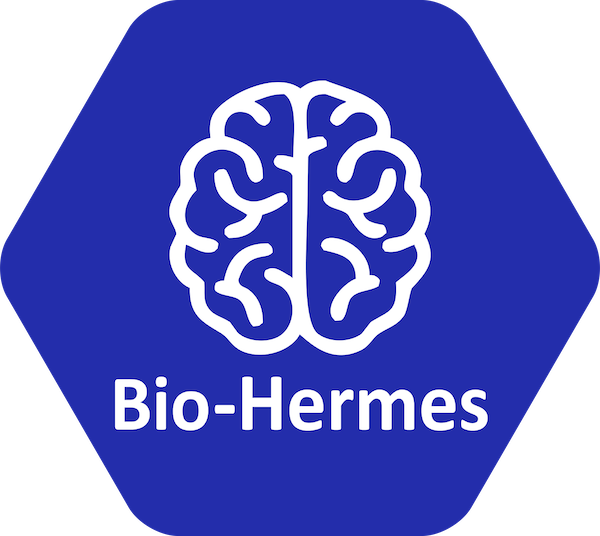In the hands of the SFC-funded Brain Health ARC, the Bio-Hermes dataset offers the Scottish dementia research community a platform for new ideas, collaboration and early career development. Millie Mather explains more in our latest guest blog.
During my working hours, I can be identified as the sole person in the room without a PhD in science or medicine. In fact, I have recently become the giver of the vacant stare that I often receive when discussing my undergraduate degree with family members who never finished high school. It is humbling and offers a rare opportunity to learn about subjects so unfamiliar to me, though I often feel it’s best if I don’t question the acronyms. Ironically, this is exactly why I’m in the room.
As I write this, I am over a month into my role as Communications Officer for the Alliances for Research Challenges (ARCs). This the cross-disciplinary amalgamation of four research initiatives covering food and nutrition, quantum, net zero, and brain health. Funded by the Scottish Funding Council, the ARCs champion collaboration across fields and industries, promoting inclusivity and opportunities to enable greater outcomes. In turn, it is my job to translate these feats into eye-catching graphics that speak to a wider audience.
However, it has become clear that the ARCs’ approach is unorthodox within the scientific community. Typically, science is competitive, demanding and quite isolating. The concept of research is part of this exact exclusivity; it is an unknown realm of studies and projects which have the potential for incredible impact, often stretching beyond what we know to be possible, and are raced to by individuals and institutions for recognition and accolades (likely also unfamiliar acronyms). In essence, science can feel far removed from everyday life.
More so, “open research” is often not what it seems. Whether requiring a monetary contribution or becoming an active collaborator, the promise of available research is often met with disappointment.
Enter: The Brain Health ARC’s data challenge.
The ambition of the Brain Health ARC, one of the four alliances, is to make Scotland the world leader for brain health research and in turn find solutions to the societal challenges associated with poor brain health. It is this exact ambition that made the ARC successful in their bid to gain access to the Bio-Hermes Biomarker dataset.
Bear with me. The dataset is the result of over 80,000 multimodal dementia indicators including blood biomarkers, genetics, cognitive tests, clinical data, and demographic data. In short, flagging up anything that could later result in a dementia diagnosis. It is also unrivalled in its racial and ethnic diversity, meaning the information could be vital in answering important questions of prediction, diagnosis, and possible treatments for patients globally. Being able to test for dementia is also thought to be pivotal in the early treatment and prediction of Alzheimer’s, with hopes that a blood test could become a transformational tool to inform clinicians about a patient’s biology and potential for disease 20-30 years prior to diagnosis.
With this dataset in its hands and unlimited means of using it, the Brain Health ARC has created a competition for access. It is open to anyone in Scotland with a question regarding dementia research, uniting the Scottish dementia research community while also offering a platform for new ideas and creating a legacy of collaboration and early career researcher development.
By opening it up to individuals and researchers of any and every background, the science community is acknowledging that they don’t have all the answers. Alongside the creation of the ARCs, this has allowed someone such as me to be emerged within an incredible scientific opportunity. Beyond the ground-breaking potential of the data itself, the challenge embodies the spirit of the ARCs and their ethos of transforming science into something akin to a team sport.
Come 2025, the data will be open to everyone. In the meantime, The Brain Health Alliance is encouraging curiosity and collaboration with life-changing possibilities. You can find out more about the BioHermes Data Challenge on the Brain Health ARC website.
Millie Mather, Communications Officer for the Alliances for Research Challenges at the University of Glasgow.
